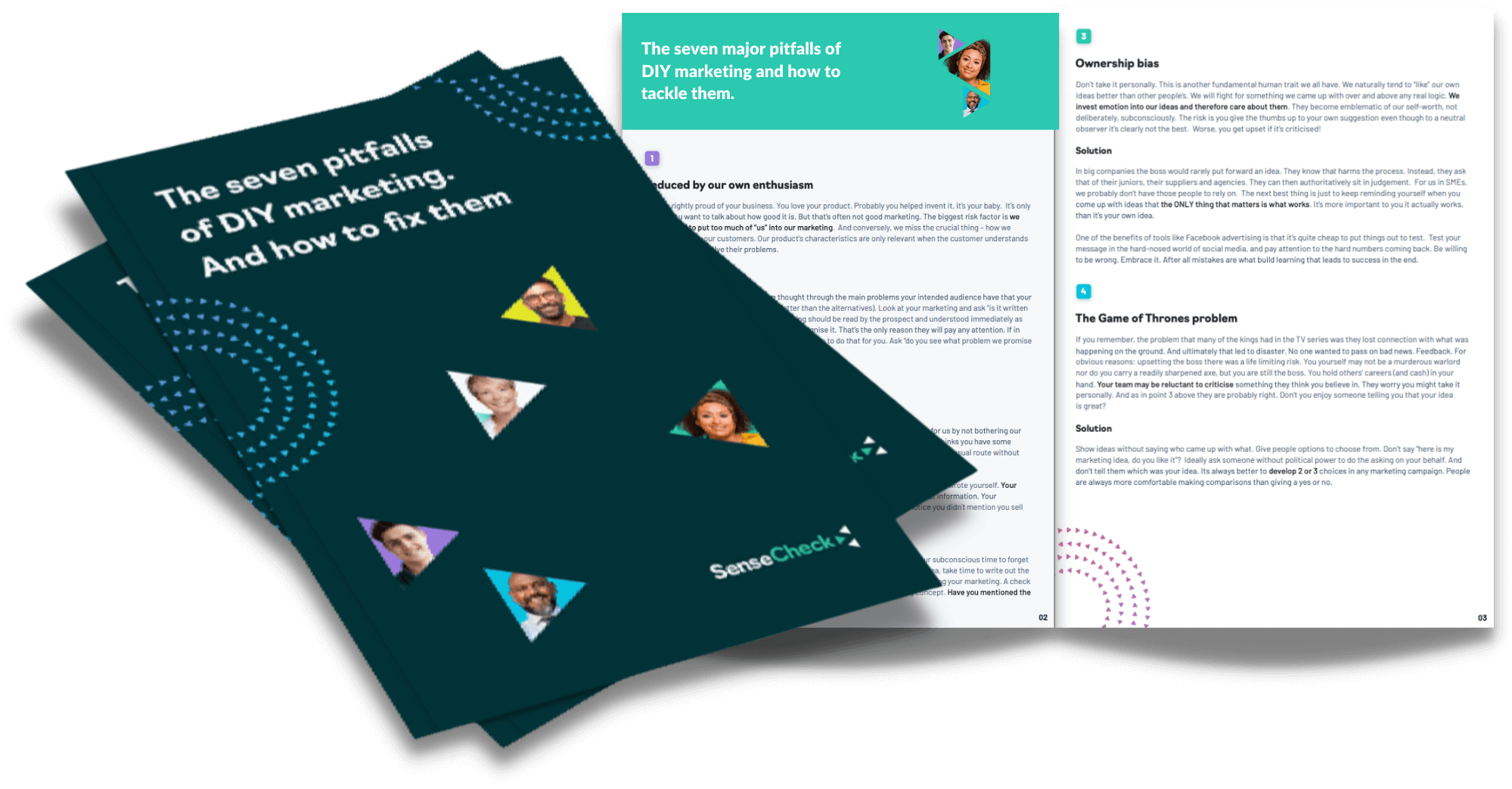
How come many small businesses will tell you “we don’t do marketing”?
One of the conundrums I find is how many B2B firms will say “we don’t spend much on marketing”. It’s almost said with a sense of pride – that it’s a mark of success.
But if marketing is the process of winning new customers and growing revenue, if they genuinely don’t do marketing, what do they do?
Of course, at the heart of this is a definition of marketing. What does it include, what doesn’t it. The most narrow definition is marketing communications – ie general stuff put out to the external market used to make the business look good. As one sceptical commentator puts it, “if the business activity ends in a new order, it’s “sales”, if it didn’t, it’s “marketing”. Often companies are thinking of this element of marketing when they say “we don’t do it”. The broadest definition is everything because marketing is the entire intellectual process from understanding clients, to developing solutions and connecting your solution to client needs. Ie the entire business process. All companies do this kind of marketing….

One of the reasons why the “we don’t do marketing” is said with such pride is will be because that firm gets most of their new leads by referrals or happy clients moving jobs and taking the product with them. In their mind, growth is the positive but passive by-product of doing a good job. And, actually, I think this genuinely is the source of a lot of new sales for many small b2b firms. Quite rightly. It is for mine.
But is this marketing? I’d argue it is, or rather that with application of a chunk of marketing thinking the existing organic growth rate would be even higher.
The start point clearly is doing a great job, but looking at this from a marketing lens a key question is “does everyone there know we are doing a great job”. How often is one user at the client a big fan, but others in management don’t even know about us? There is a marketing job in existing clients to cement the success and make sure that its well known. This improves retention but also accelerates referral and porting to new firms. The more people who are fans the more this will happen. What marketing plans do you have to communicate in your existing client base?
The second key thing that any marketing processional would think about is a client database. Exactly the way outbound marketing professional would run a prospect database. Do you capture all your users as you deal with them, creating a database of people you have worked with? Do you have a newsletter for them? Do you run user forums? Do you work to “get to know them”? How much more likely is such a person to bring you in to a new company when they move jobs if they hear from you regularly.

A third component is where existing clients buy some of what you do, but not all. That’s a very similar funnel to a new prospect (albeit it starts half way down the funnel). Many say that it’s far easier to sell a new product to an existing client, but do you have a strategy for this? Do you have “marketing” communications to do that. Do you current clients even know you have other products?
I’d accept that when a CEO says “we don’t have to do marketing” this is probably evidence of a very effective product. But I worry that growth is less than it would be if marketing thinking was applied to the levers of growth that are passively working for that company already. A little bit of cash, and a little bit of time focussed on what already works for you could pay big dividends. Literally.
Roger Jackson
CEO of ShopperIntelligence
Founder of SenseCheck
